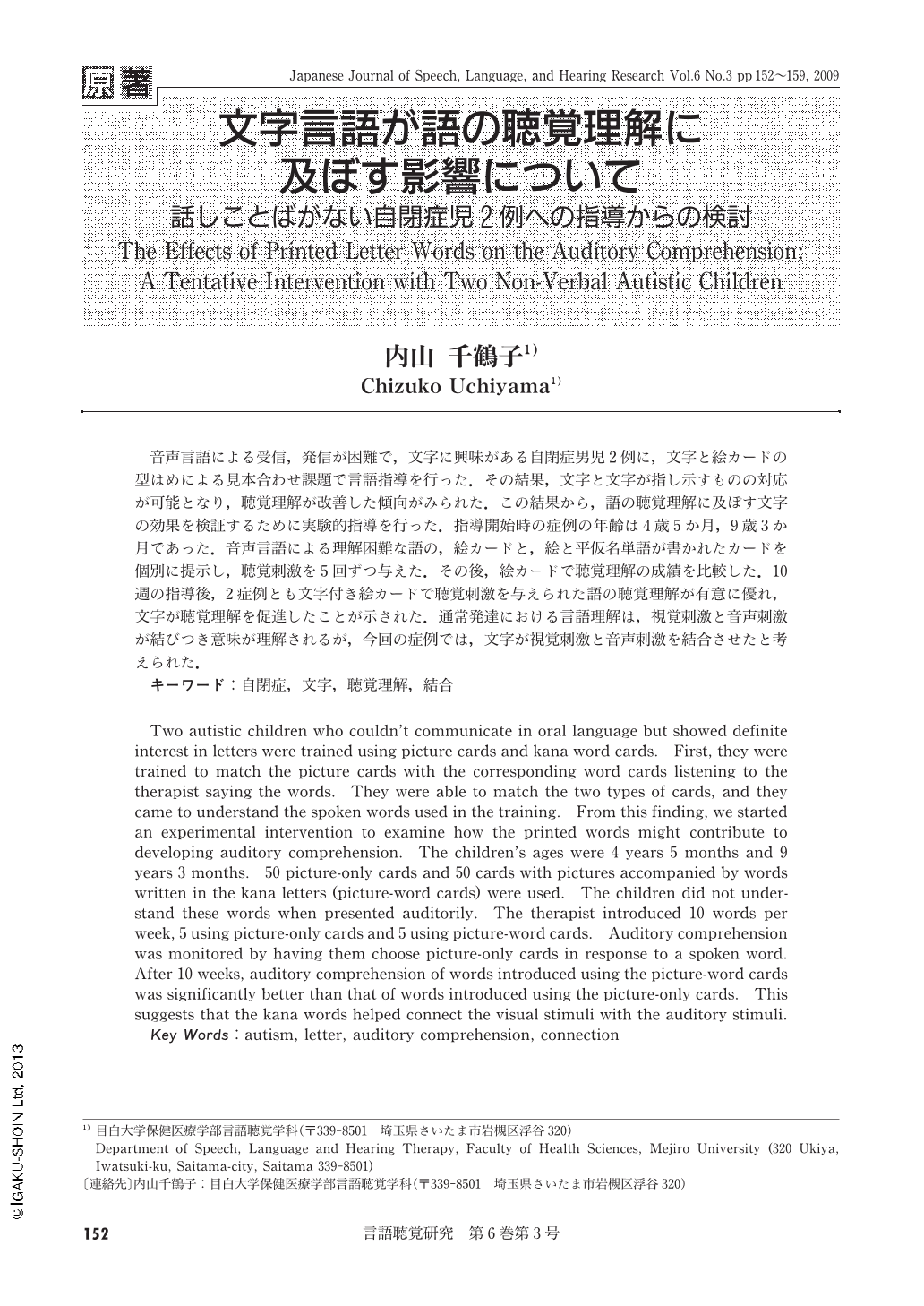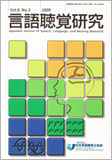Japanese
English
- 有料閲覧
- Abstract 文献概要
- 1ページ目 Look Inside
- 参考文献 Reference
- サイト内被引用 Cited by
音声言語による受信,発信が困難で,文字に興味がある自閉症男児2例に,文字と絵カードの型はめによる見本合わせ課題で言語指導を行った.その結果,文字と文字が指し示すものの対応が可能となり,聴覚理解が改善した傾向がみられた.この結果から,語の聴覚理解に及ぼす文字の効果を検証するために実験的指導を行った.指導開始時の症例の年齢は4歳5か月,9歳3か月であった.音声言語による理解困難な語の,絵カードと,絵と平仮名単語が書かれたカードを個別に提示し,聴覚刺激を5回ずつ与えた.その後,絵カードで聴覚理解の成績を比較した.10週の指導後,2症例とも文字付き絵カードで聴覚刺激を与えられた語の聴覚理解が有意に優れ,文字が聴覚理解を促進したことが示された.通常発達における言語理解は,視覚刺激と音声刺激が結びつき意味が理解されるが,今回の症例では,文字が視覚刺激と音声刺激を結合させたと考えられた.
Two autistic children who couldn't communicate in oral language but showed definite interest in letters were trained using picture cards and kana word cards. First, they were trained to match the picture cards with the corresponding word cards listening to the therapist saying the words. They were able to match the two types of cards, and they came to understand the spoken words used in the training. From this finding, we started an experimental intervention to examine how the printed words might contribute to developing auditory comprehension. The children's ages were 4 years 5 months and 9 years 3 months. 50 picture-only cards and 50 cards with pictures accompanied by words written in the kana letters (picture-word cards) were used. The children did not understand these words when presented auditorily. The therapist introduced 10 words per week, 5 using picture-only cards and 5 using picture-word cards. Auditory comprehension was monitored by having them choose picture-only cards in response to a spoken word. After 10 weeks, auditory comprehension of words introduced using the picture-word cards was significantly better than that of words introduced using the picture-only cards. This suggests that the kana words helped connect the visual stimuli with the auditory stimuli.

Copyright © 2009, Japanese Association of Speech-Language-Hearing Therapists. All rights reserved.


